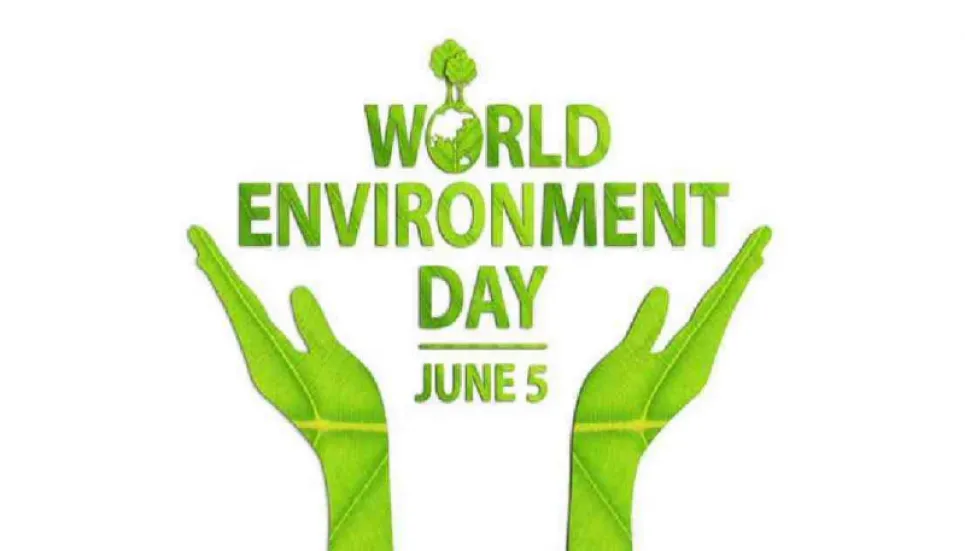Home ›› 05 Jun 2021 ›› World Biz

Shahnoor Wahid
The scale of damage already done to mother nature is extensive and most of it is irreversible. Greedy miners have been extracting precious metals and stones from the deep depths of earth since time immemorial. Forests for miles together have been felled to meet the “need” of the developers. Plastic and harmful chemical pollution has reached the oceans in recent years threatening marine life forms to an alarming level. Hazardous micro components in air make breathing an ordeal for the humans.
Against such a grim background, the world observed World Environment Day 2021 on 5 June. And the theme this year has been pertinently selected: "Reimagine. Recreate. Restore."
“According to the WED website, every three seconds, the world loses enough forest to cover a football pitch, and over the last century, humans have destroyed half of the wetlands. As much as 50 per cent of coral reefs have already been lost and up to 90 per cent of coral reefs could be lost by 2050, even if global warming is limited to an increase of 1.5 degrees Celsius.
“The theme means to prevent, halt and reverse this damage – to go from exploiting nature to healing it. This World Environment Day aims to revive billions of hectares. The theme focuses that healthy ecosystem can enhance people’s livelihoods, counteract climate change and stop the collapse of biodiversity.”
Listen to Inger Andersen, UNEP Executive Director on the issue. “It’s easy to lose hope when we think of the sheer magnitude of the challenges we face and the avalanche of bad news that we wake up to every morning. Just as we caused the climate crisis, the biodiversity crisis and the pollution crisis, we can reverse the damage that we’ve done; we can be the first generation to reimagine, to recreate and to restore nature to kickstart action for a better world.”
What is the benefit of ecosystem restoration in terms of money? It seems a lot really. We may take a look at a recent report released by United Nations Environment Programme (UNEP). The report says that “between now and 2030, the restoration of 350 million hectares of degraded terrestrial and aquatic ecosystems could generate US$9 trillion in ecosystem services and remove up to 26 gigatonnes of greenhouse gases from the atmosphere. The economic benefits are ten times more than the cost of investment, whereas inaction is at least three times more costly than ecosystem restoration.”
These are mindboggling facts indeed, and bold steps need to be taken by the governments without any fear or favour. Development planners have to think differently from now on so that nature does not get destroyed while implementing their projects. Utmost caution has to be taken before releasing harmful pollutants in water or air lest they damage human health.
We must keep this in mind that we have to save this only planet we have to live and sustain and hand over to the coming generations.
Shahnoor Wahid is the Associate Editor at The Business Post